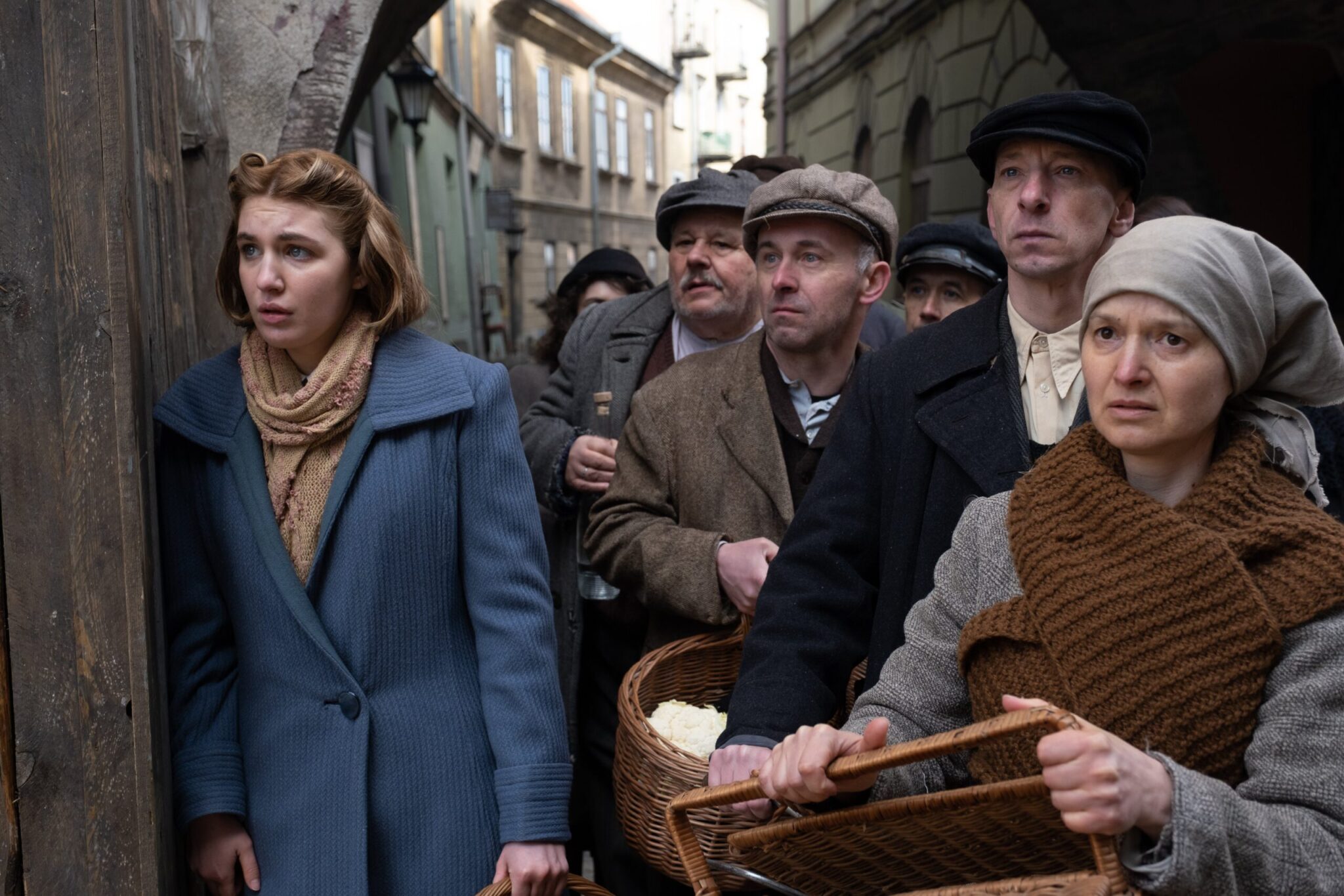?Courts ought not be affected by the weather of the day, but will be by the climate of the era.?
Before she became a Supreme Court Justice, Ruth Bader Ginsburg was one who fought against sex discrimination. One the Basis of Sex focuses on her life from the time she entered Harvard Law School until she began to argue appeals to begin to break down the barriers to equality?law by law.
In the opening scene, as credits are shown, we see a sea of men all headed the same direction. It turns out that they are on their way into the law school. We see just one woman among them. Later we learn that there are nine new women law students that year. As the new students begin their studies, the dean addresses the new class by speaking about what it means to be a ?Harvard Man?. That was the world at the time Ruth (Felicity Jones) began her journey towards being a lawyer. And it didn?t get better when she graduated. Not able to find employment at a law firm, she teaches law at Rutgers. As the turbulent 1970s dawn, she teaches a class focusing on sex discrimination, noting that under the law, women do not have rights. When her husband Martin (Armie Hammer), a tax attorney, brings her a case in which a man can?t get a deduction that a woman could, she sees it as a chance to chip away at the law.
The film speaks of sex discrimination not as an abstract, but as the reality in Ruth?s life. She serves as the victim of the systemic sexism of the day. Even though it is clear that she has the intelligence and the drive to be a good attorney, each firm she interviews with finds a different reason why they won?t hire her, ranging from we already have one woman, why would we want two? to the wives would be jealous. Martin recognizes her gifts and is supportive. But such male benevolence is hard to find elsewhere in the film. Even an old childhood friend, Mel Wulf (Justin Theroux), now at the ACLU, supports her in theory, but not so much in action. The male condescension reaches its highest point (or deepest depth) when one of the judges in her appeals case mansplains the three branches of government and how laws are made.
The film also spends time on the Ginsburg?s family life, with special emphasis on Ruth?s sometimes troubled relationship with her teenage daughter Jane (Cailee Spaeni). Jane at first feels as though her mother dismisses her, but in time the two come to appreciate each other. Ruth sees in Jane a new generation who will not accept the status quo and who will fight for change.
The film gets a bit dramatic at times. In reality, I doubt the arguments in an appellate court on a $270 tax case is very exciting, but for this film, it seeks to put us on the edges of our seats. As first Martin, then Ruth, make their case, it seems destined to lose, until Ruth comes up in the final moments to turn the tide. But that drama is what gives the film a sense of urgency to remind us that the battles for justice are not done.
Sitting close to fifty years removed from the time of the film, it may seem that the attitudes of that time were ridiculous. However, as the issues are discussed, arguments are often made that such changes in the laws will destroy the family and fabric of society. Often it is asserted that the male dominant society is the natural order of things. Should women be firefighters or combat troops? While some may find such claims out of date, they continue to be made in many gender related issues that continue to be struggled with to this day.
Fans of Justice Ginsburg (who knew judges would ever have fans?) will be happy to know that the real RBG does make a brief appearance atop the Supreme Court steps at the end of the film, which brought some applause at the showing I attended. That she is so recognizable is a testament to the role she continues to play as we continue to need champions of justice.
Photos courtesy of Focus Features







